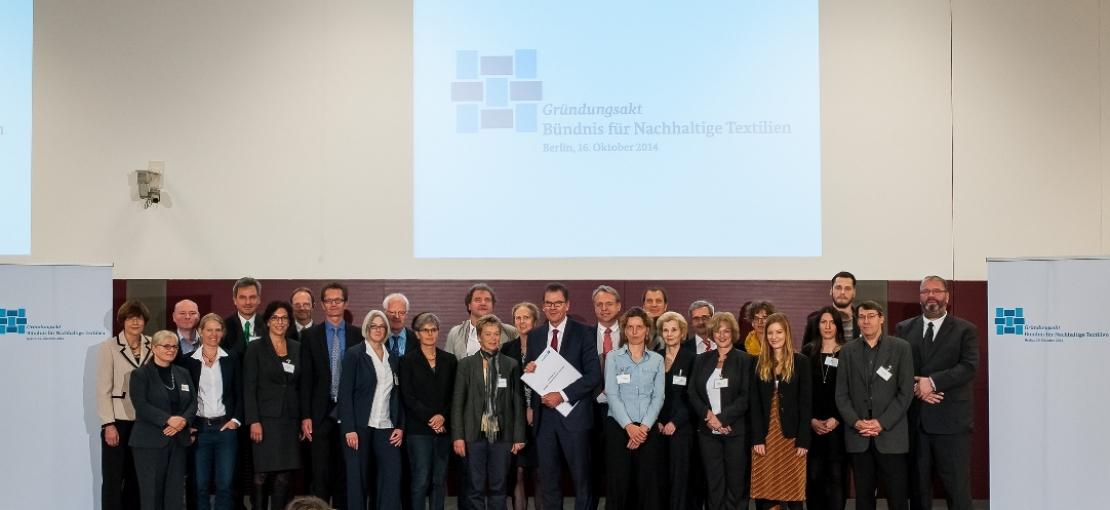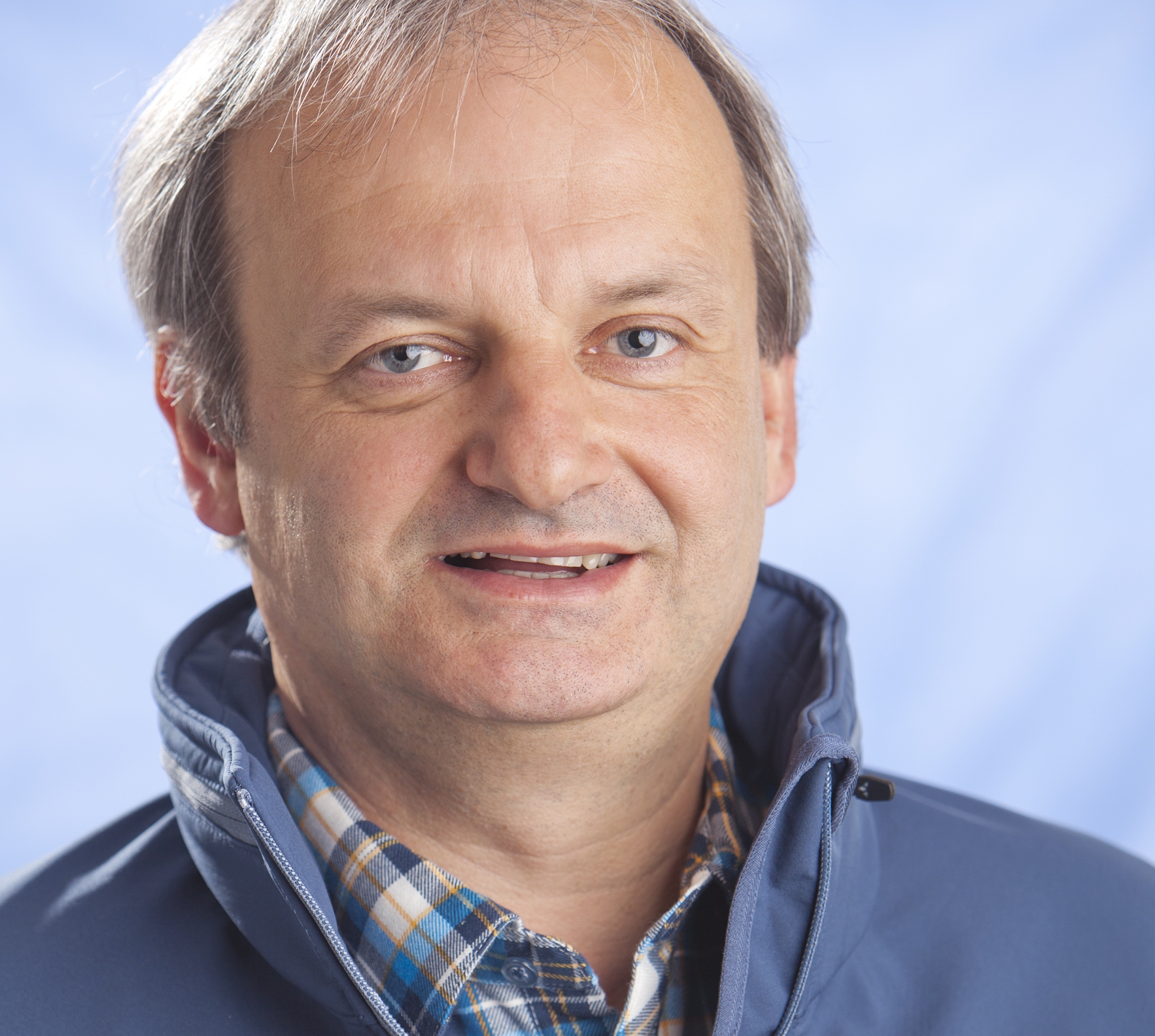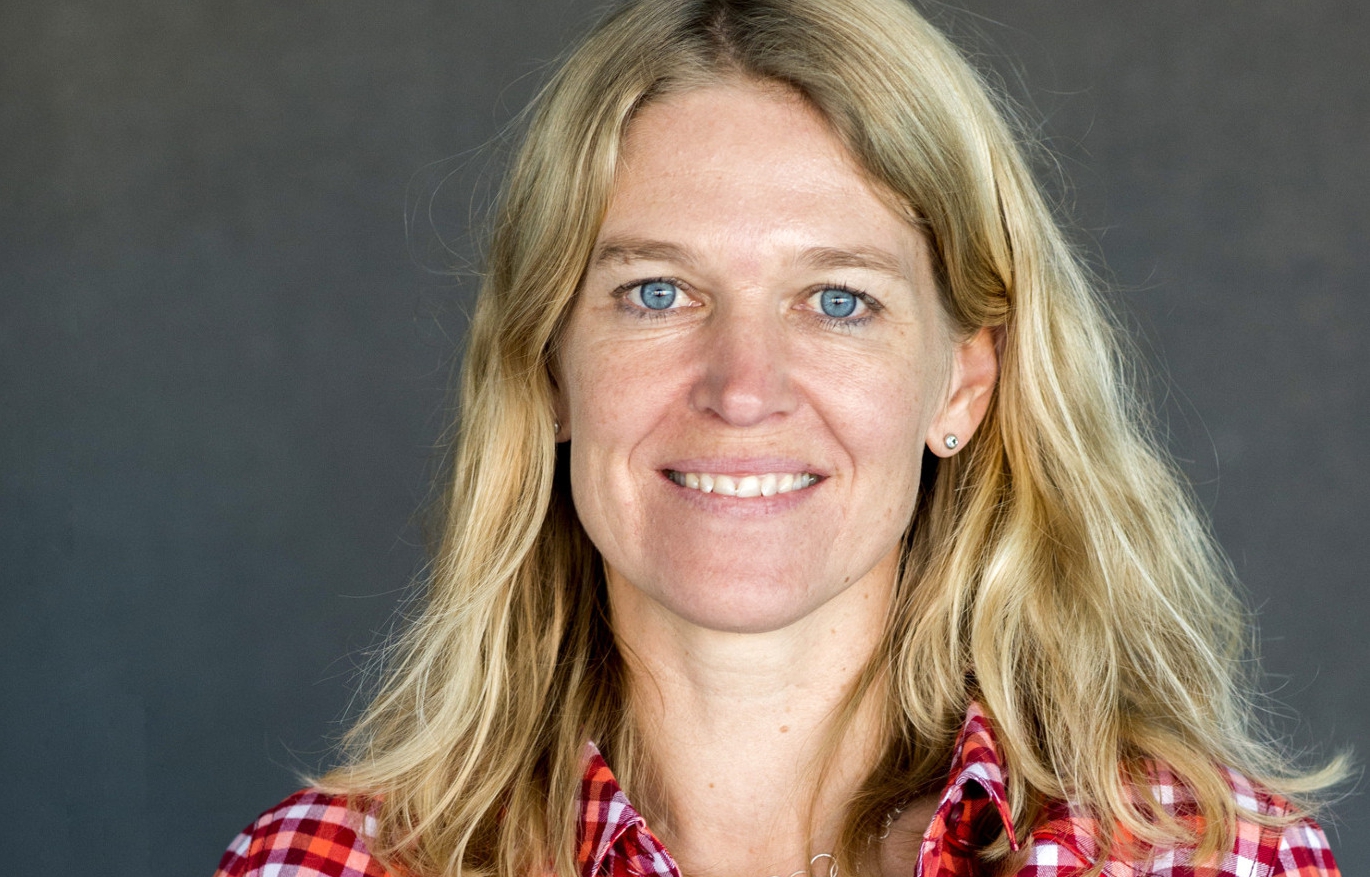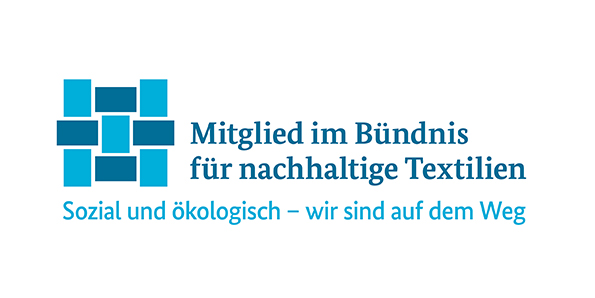
The VAUDE Partnership for Sustainable Textiles Roadmap – our objectives for your fair and green outdoor product
A partnership for sustainable textiles
In the Partnership for Sustainable Textiles, the federal government, textile and apparel industry, retail, trade unions and civil society are joining forces to put improved, internationally recognized environmental and social standards into practice throughout the value chain of textile production.
With this, disasters such as the collapse of the Rana Plaza building in Bangladesh in 2013 should be avoided in the future.
Grüner Knopf (Green Button) - a government seal for fair clothing
The Federal Development Minister and initiator of the Partnership for Sustainable Textiles, Gerd Müller, is striving for a government meta-seal for fair clothing: the “Grüne Knopf”. We support this project. In our opinion, it is important that the new seal is compatible with existing international standards such as the FWF or the Higg Index . In addition, it should be based on transparent criteria and compliance should be ensured by independent verification.

»VAUDE is responsible for the social and environmental conditions under which our clothing is manufactured. That is why we support Minister Müller's proposal to make sustainably produced clothing visible to consumers with a government seal.«
Roadmap with ambitious goals
In January 2017 we reported extensively on our activities and measures for fair social standards, environmental management and environmentally friendly procurement of materials in the supply chain in accordance with the Partnership’s criteria. We also set ambitious targets aligned with our corporate strategy. This was reviewed by an independent expert from the Global Sustainable Management GmbH.
The VAUDE Roadmap
Founding member of the Partnership for Sustainable Textiles
We became a founding member of the Partnership for Sustainable Textiles in the fall of 2014.
Jan Lorch (Head of Sales and CSR) represented VAUDE in the interim steering committee, which carried out the Strategy and Process Planning of the partnership until July 31, 2015.
Since August 2015, Jan Lorch has been an active member of the working group for the development of a review process, which will guarantee the implementation, evaluation and reporting of jointly defined measures.
VAUDE’s Corporate Philosophy fits the Partnership’s goals
The goals of the Textile Partnership are consistent with our corporate vision, which is to be the most sustainable outdoor outfitter in Europe. From experience, we know that it is extremely difficult for us as a family owned company to change conditions in the textile manufacturing industry on our own. Therefore, we have always committed ourselves to a joint approach across the industry and to political activism.
With the establishment of the Textile Partnership, the federal government is taking an important first step in this direction. We welcome the fact that the federal government itself is contributing with financial support of specific projects and measures in the environmental and social arena, with public-private partnerships with the Gesellschaft für Internationale Zusammenarbeit (Society for International Cooperation), GIZ, and the further integration of sustainability criteria in public procurement.

»In my view, the Textile Partnership is a great opportunity to work together to address problems in our supply chain and existing business models and actually make significant, positive change.«
Opportunities and Challenges
We are encouraged that, for the first time, the social and environmental sustainability of textile products is so high on the political agenda. We consider it a positive signal that one year after the founding of the partnership, membership has grown five-fold.
We hope that all participants continue to pull in the same direction, including very critical campaign organizations, with constructive, professional and international agreements. This also includes that the good social and environmental standards and initiatives already in existence, such as the
Fair Wear Foundation or the bluesign® system, will be recognized by the partnership. We also hope that awareness of the challenges in textile production – both in the industry and among consumers – will be raised significantly.
The objectives of the Textile Partnership in the environmental and social spheres are fully in line with our own objectives. We advocate for ambitious goal setting with a degree of accountability and endorse an external label for the further development of the members such as those the Fair Wear Foundation has (“Needs improvement”, Good”, “Leader”).
The biggest challenges currently for VAUDE are in chemicals management in the supply chain. More at Our Challenges. bluesign® technologies ag will represent us on this issue in the future working group of the Textile Partnership because as a family-owned company, our resources are limited.
We advocate the promotion of sustainable business
Based on our experience and values, we take a good look at socio-political issues. This includes the promotion of sustainable business - read more at Our political stance.
Copyright for the cover photo on this page: „Photothek.net“





